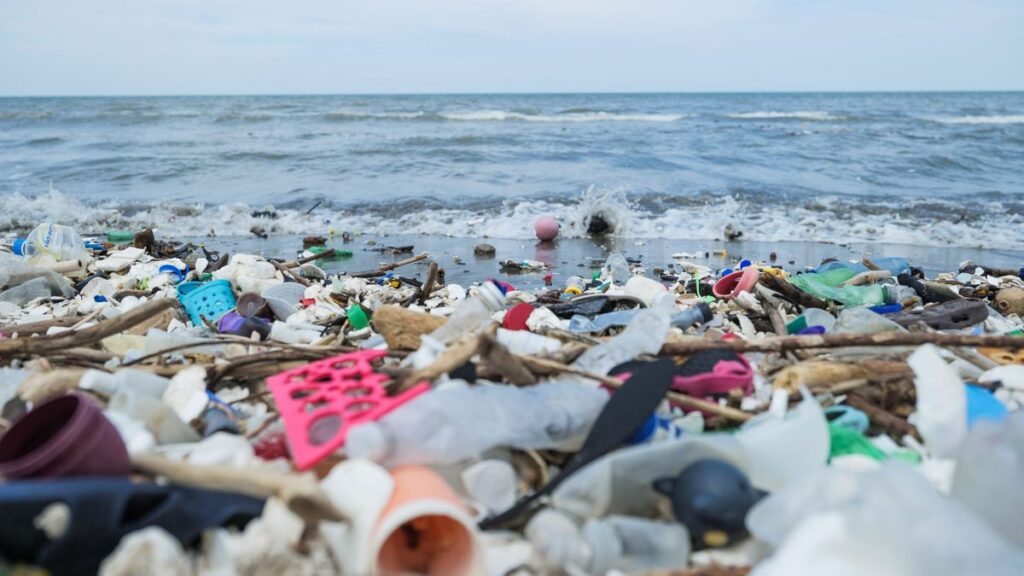
Plastic pollution in our water bodies has become a global crisis, posing a severe threat to marine life. Each year, millions of tons of plastic waste find their way into the world’s water bodies, wreaking havoc on marine ecosystems and causing immeasurable harm to the creatures that inhabit them. This article explores the devastating effects of plastic pollution on marine life and the urgent need for action to mitigate this ecological disaster.
The Prevalence of Plastic Pollution.
Plastic is a versatile and durable material that has undoubtedly revolutionized modern life. However, its persistence in the environment, particularly in the marine environment, is a growing concern. Plastics don’t biodegrade; instead, they break down into smaller and smaller pieces through a process known as photodegradation, which can take hundreds of years.
The Consequences for Marine Life.
Marine animals, from plankton to large mammals, often mistake plastic debris for food. This can lead to blockages in their digestive systems, malnutrition, and even death. Albatrosses, for instance, have been found with stomachs full of plastic items, from bottle caps to cigarette lighters.
Lost or discarded fishing gear, such as nets, lines, and traps, constitute a significant portion of marine plastic waste. Sea turtles, seals, and seabirds are particularly vulnerable to becoming entangled in these items, which can cause injuries, infections, or death.
Plastic waste also absorbs and retains various toxic chemicals, many of which are released into the water over time. These chemicals can contaminate the marine ecosystem, affecting the health of marine organisms and those that consume them, including humans.
Accumulated plastic debris can smother and damage fragile coral reefs and other critical marine habitats. This harms not only the corals themselves but also the multitude of species that depend on these ecosystems for survival.
Tiny plastic particles, known as microplastics, pose a unique threat. These particles are often ingested by filter-feeding organisms, entering the food chain and potentially affecting all levels of marine life, including humans.
Mitigating Plastic Pollution.
Governments and businesses must work together to reduce the production and consumption of single-use plastics. Bans on certain plastic items, like straws and plastic bags, have already been implemented in various regions. Uganda, like some other countries in Africa, implemented a ban on plastic bags. The ban, which went into effect in 2007, aimed to reduce the use of single-use plastic bags. Despite the ban, plastic bags were still in use in some areas, and enforcement of the ban varied.
Proper disposal and recycling facilities need to be developed and accessible to all communities. This includes implementing effective waste collection systems and promoting recycling and responsible waste disposal. In many regions of Uganda, there is lack of efficient waste management systems. This has resulted into the improper disposal of plastic waste, which often ends up in water bodies and the environment, contributing to pollution.
Education campaigns can raise awareness about the consequences of plastic pollution and encourage responsible consumer choices. Individuals can also take small steps, such as reducing their plastic use and participating in beach clean-ups. In addition, some communities and organizations in Uganda are taking action to combat plastic pollution. They have organized clean-up activities and promoted recycling and responsible waste disposal.
Researchers are also exploring innovative solutions, such as biodegradable plastics and new materials, to mitigate the environmental impact of plastics.
In a nutshell, the issue of plastic pollution harming marine life is one of the most pressing environmental challenges of our time. The consequences are dire, affecting not only marine ecosystems but also the health and well-being of humans who rely on the water bodies for sustenance. Addressing this crisis requires concerted efforts from individuals, communities, governments, and industries to reduce plastic consumption and improve waste management. Only through collective action can we hope to protect our water bodies and the diverse marine life that depends on them.


